New Clashes Dash Hopes Of End To Fighting On Azerbaijan-Armenia Border
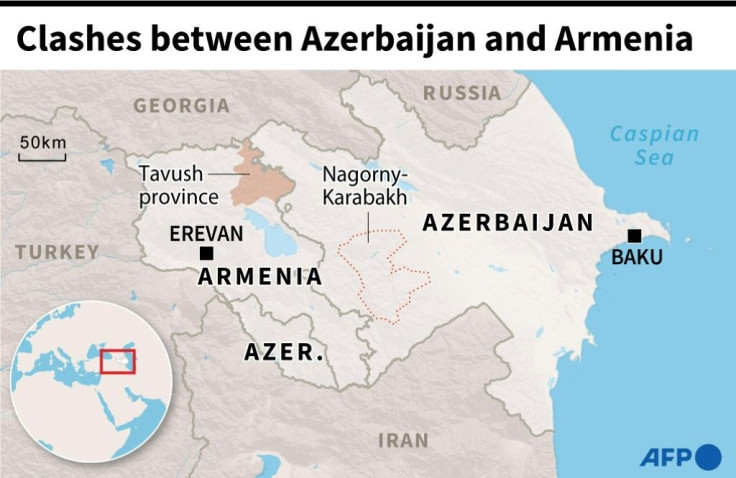
New clashes erupted Thursday on the border between Azerbaijan and Armenia following a day-long lull, dashing hopes of a rapid end to a flare-up in fighting.
Azerbaijan said another of its soldiers had been killed, bringing to 17 the number of dead on both sides since fresh fighting broke out between the arch-rivals on Sunday.
The two ex-Soviet republics have been locked for decades in a conflict over Azerbaijan's southwestern separatist region of Nagorny Karabakh, which was seized by ethnic Armenian separatists in a 1990s war that claimed 30,000 lives.
The recent fighting has been unusual as it broke out hundreds of kilometres from Karabakh, in the northern regions of Tovuz in Azerbaijan and Tavush in Armenia.
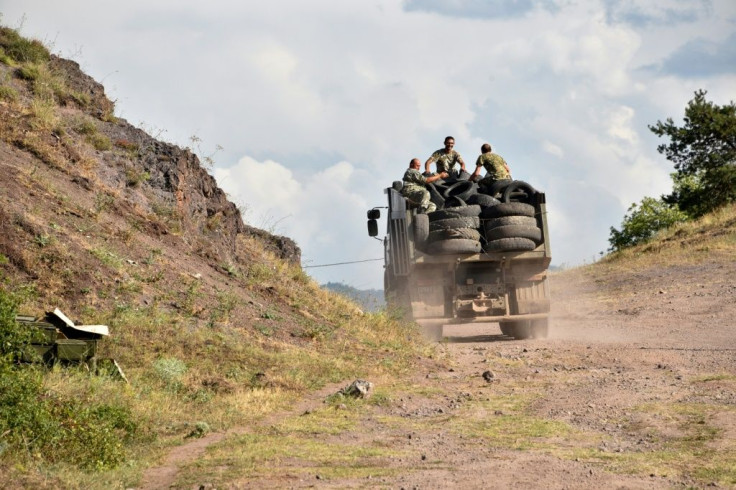
Local villagers on both sides of the border told AFP their homes had come under fire and they feared for their lives.
"An artillery shell hit our yard, 10 metres from the house," resident Shain Abiyev said in the Azerbaijani village of Dondar Quscu near the border.
"Fortunately my family was not at home, but if they had been in the house there would have been a tragedy."
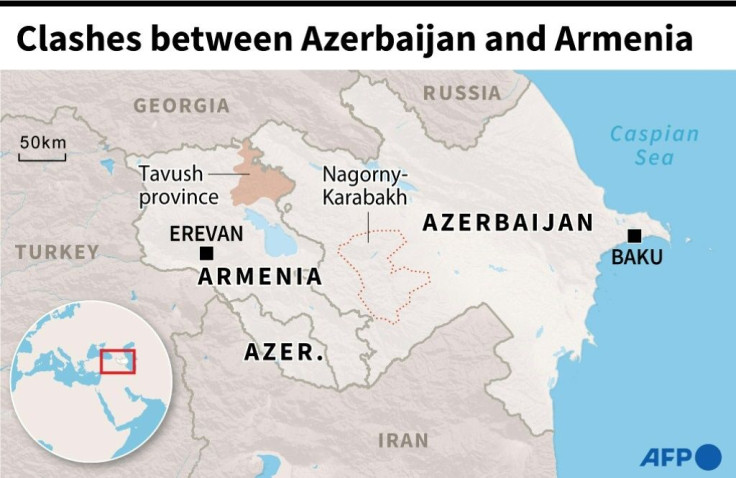
In Aygepar on the Armenian side, 70-year-old Evelina Hovhannisyan said she had spent eight hours in her bathroom while the village was under fire.
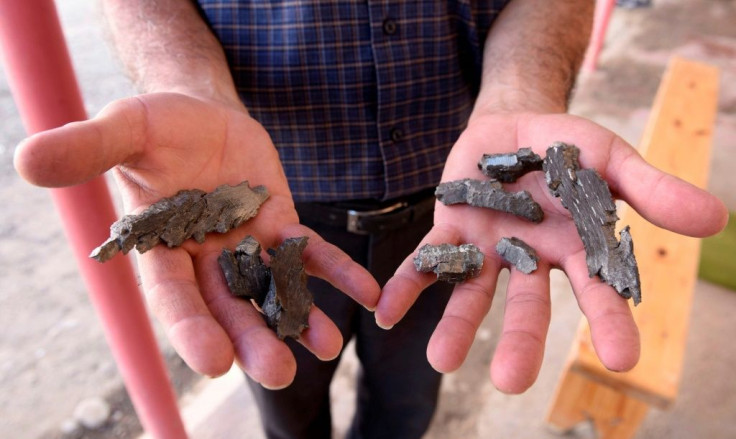
"I could not go out because they were firing. No matter what happens, this is our land, we will not leave our land, our home," she said.
The clashes broke out on Sunday, with the two sides exchanging artillery and mortar fire for three days until a pause on Wednesday after international calls for restraint.
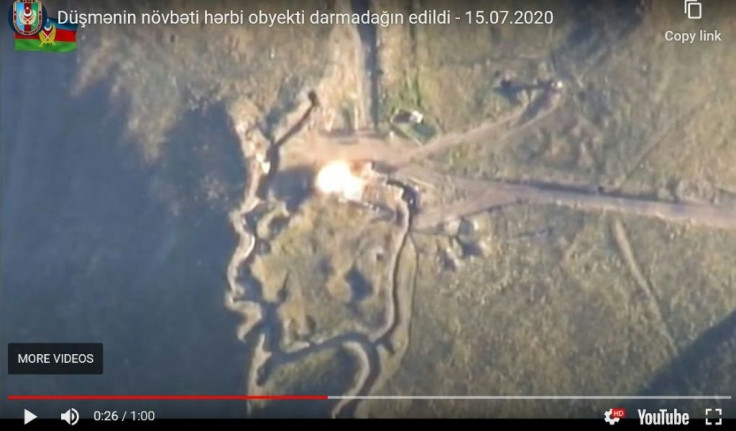
The two countries' defence ministries said shelling had resumed in the early hours of Thursday, with both sides blaming each other.
Armenian defence ministry spokeswoman Sushan Stepanyan said Azerbaijani forces were "shelling Armenian villages with mortars and howitzers" in Tavush.
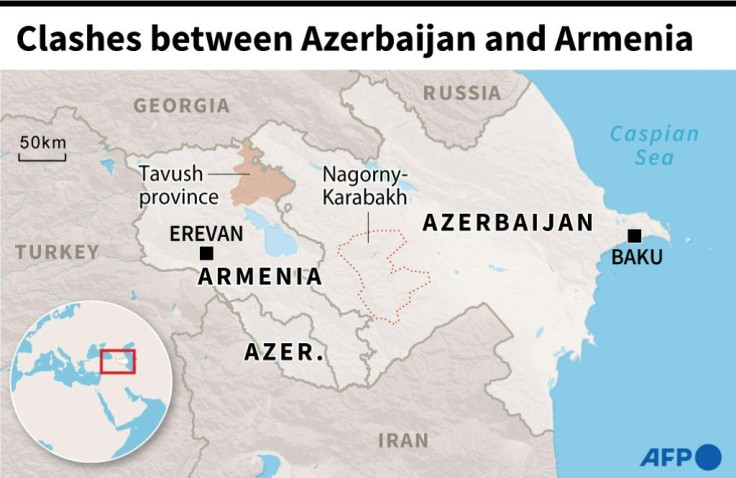
The defence ministry in Baku blamed Armenian forces for the renewed fighting, saying in a statement that clashes started in the north after "Armenians shelled Azerbaijani villages with large-calibre weapons."
Eleven Azerbaijani troops and one civilian were killed in the first three days of clashes, as well as four Armenian soldiers, according to the two countries.
Azerbaijan's defence ministry said that another of its soldiers had been killed in Tovuz on Thursday.
Raising the stakes, Azerbaijan threatened to strike Armenia's atomic power station if Yerevan attacked strategic facilities.
"Our high-precision missile systems are capable of striking the Metsamor nuclear power station in Armenia," Azerbaijani defence ministry spokesman Vagif Dyargahly told journalists.
In a surprise move on Thursday, Azerbaijani President Ilham Aliyev sacked his long-serving foreign minister, Elmar Mammadyarov, after denouncing his performance during the crisis. He was replaced by the education minister, Jeyhun Bayramov.
The fighting has prompted calls for an immediate de-escalation from the United States, the European Union and regional powerbroker Russia. Turkey has spoken out in support of its ally Azerbaijan.
It is unclear what ignited this summer's flare-up, but analysts say it could have been a small incident like a cross-border shooting that quickly escalated.
Olesya Vartanyan, senior South Caucasus analyst for the International Crisis Group, told AFP a major confrontation would draw in big regional players Russia and Turkey.
But she said it seemed unlikely the crisis would escalate, as "neither side has territorial claims" on northern border areas and the fighting had not spread to Karabakh itself.
Talks to resolve the Karabakh dispute -- one of the worst conflicts to emerge from the 1991 collapse of the Soviet Union -- have been largely stalled since a 1994 ceasefire agreement.
France, Russia and the United States have mediated peace efforts as the "Minsk Group", but the last big push for a peace deal collapsed in 2010.
Flush from years of oil revenues, energy-rich Azerbaijan has invested heavily in its military and repeatedly vowed to retake Karabakh by force. Armenia has said it will defend the territory, which has declared its independence but relies heavily on Yerevan.
© Copyright AFP {{Year}}. All rights reserved.





















